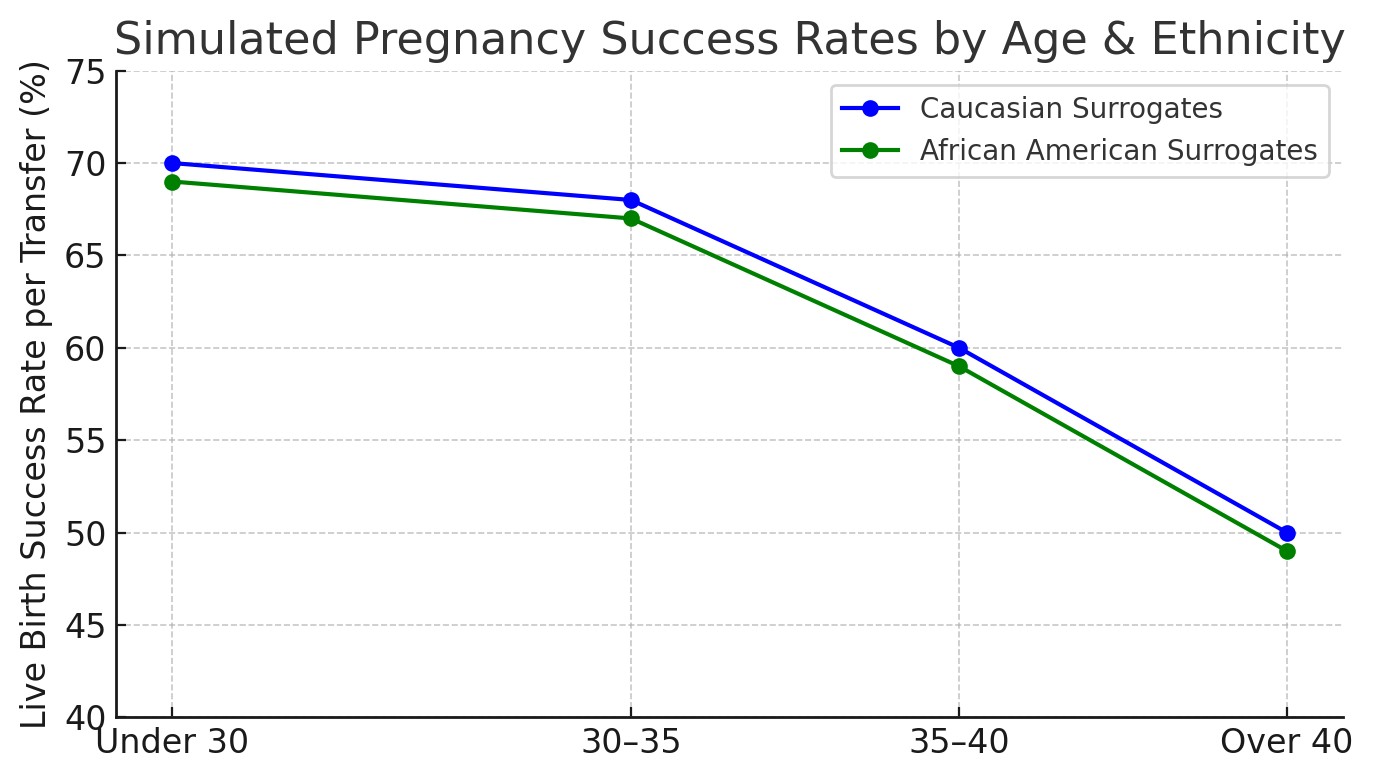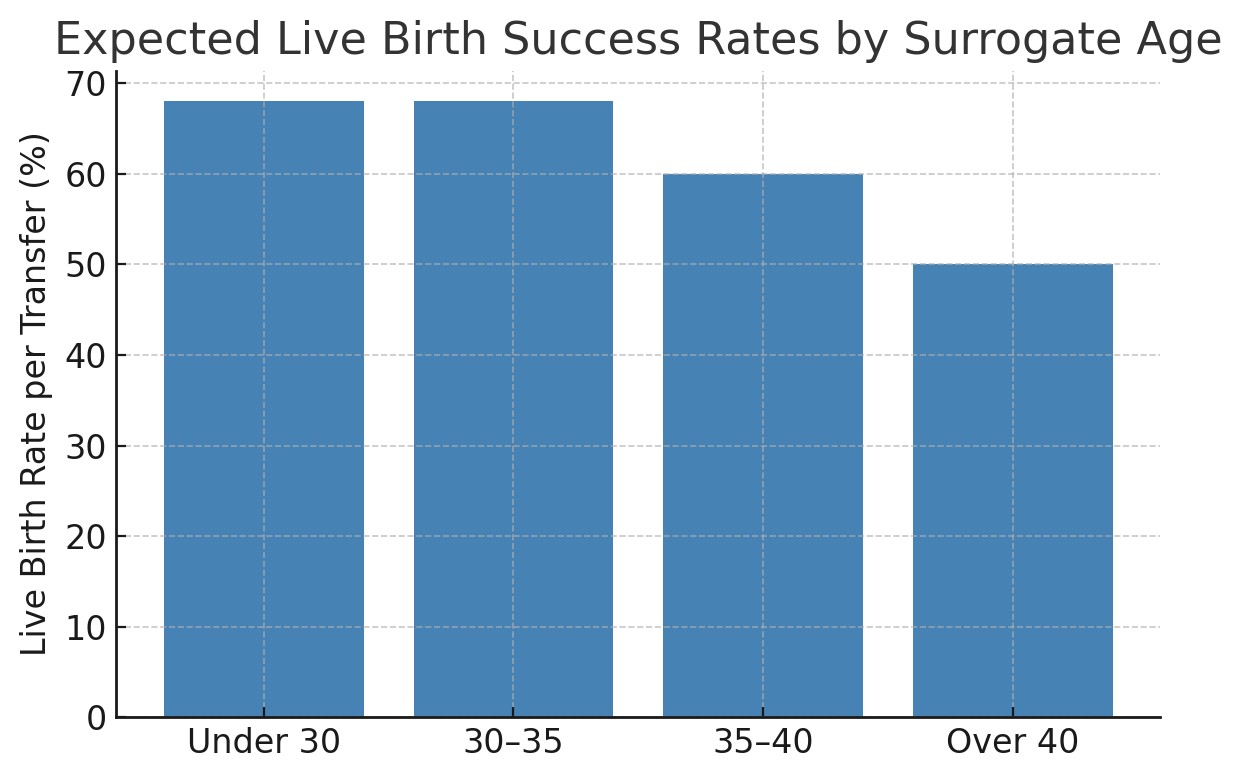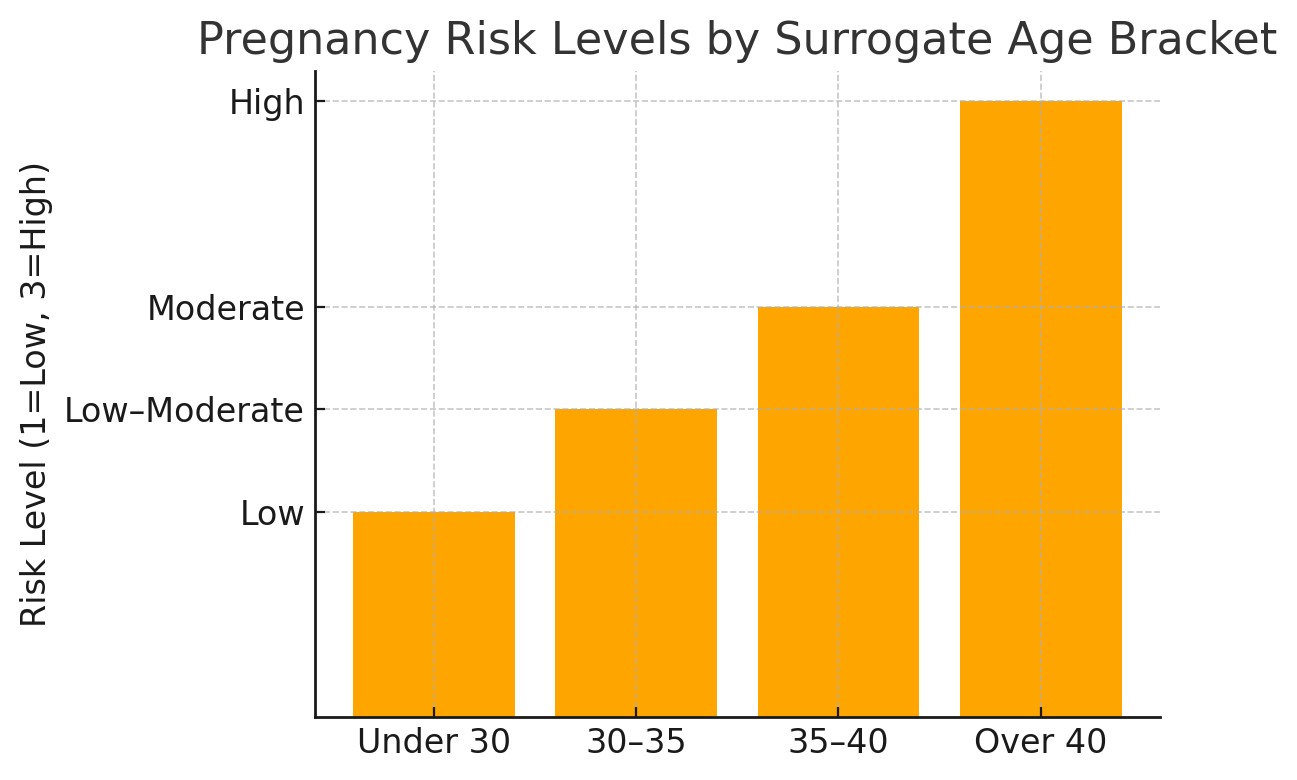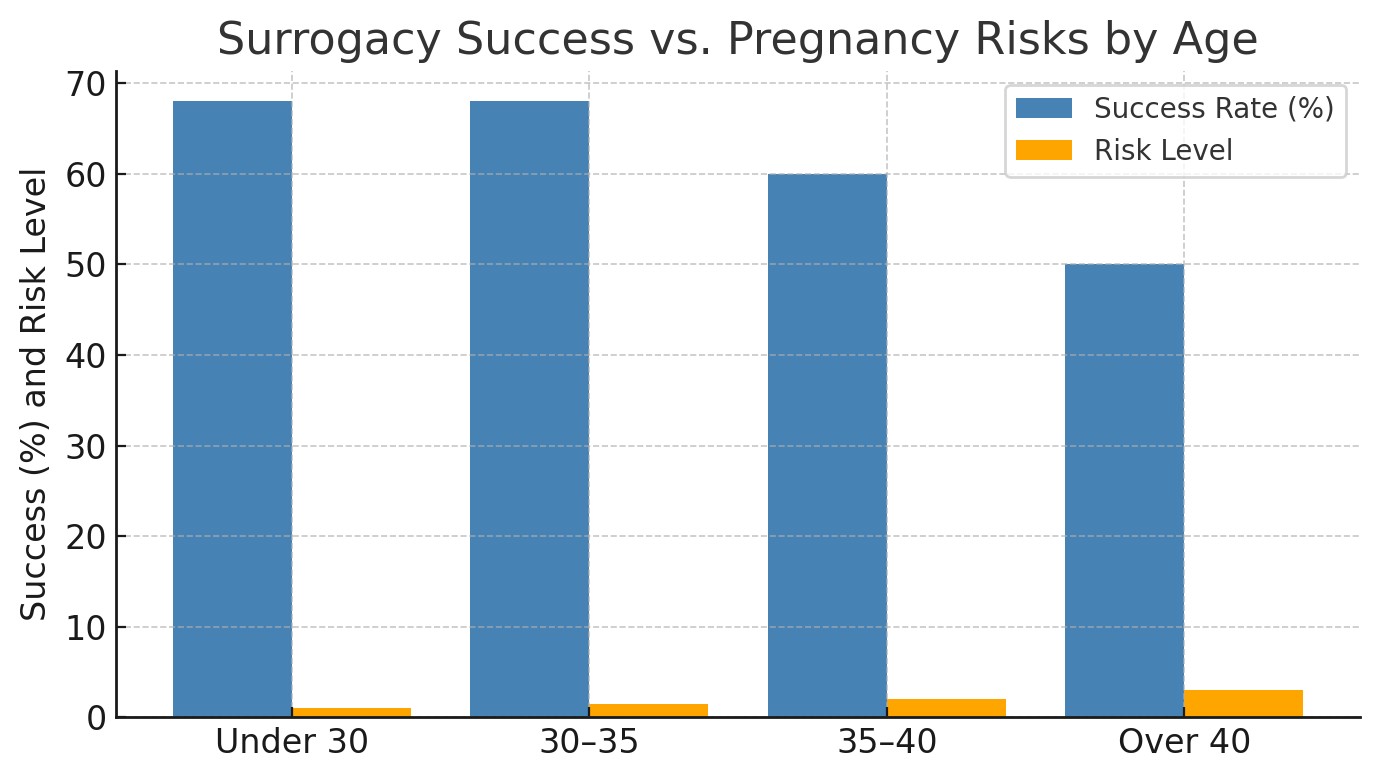
Introduction
When intended parents start exploring surrogacy, one of the first questions that often arises is: Does a surrogate’s ethnicity affect success rates? Specifically, many want to know whether Caucasian or African American surrogates tend to have better outcomes.
It’s an understandable concern, but the science is clear: once surrogates are medically screened, ethnicity has little to no effect on success rates. Instead, factors such as age, uterine health, embryo quality, and lifestyle play a far larger role.
Does Ethnicity Affect Surrogacy Success?
When we examine population-level fertility statistics, African American women have higher rates of conditions such as uterine fibroids and hypertension, both of which can affect pregnancy outcomes. However, surrogacy programs screen rigorously for these conditions.
That means by the time a surrogate mother is cleared to carry, she has already been evaluated for uterine health, general health, lifestyle, and more. Studies show that when controlled for age and medical history, Caucasian and African American surrogates achieve nearly identical implantation and live birth rates.
The Screening Process: The Great Equalizer
Surrogate screening is what levels the playing field. Only women with excellent reproductive health are selected, making ethnicity irrelevant in outcomes. Screening involves medical history, OB/GYN review, physical exam, uterine testing, lab work, psychological screening, lifestyle checks, legal clearance, and sometimes a mock cycle.

The Role of Age in Surrogacy Success
If ethnicity isn’t a big factor, what is? Age.
Surrogates under 35 have the highest success rates. 30–35 is the preferred group, balancing high success and low risk. Success declines somewhat in the late 30s, and after 40 risks increase significantly, with many agencies not accepting surrogates beyond 40.
Comparing Success Rates: Ethnicity + Age
Simulation data shows both Caucasian and African American surrogates have nearly identical success rates by age: Under 30: ~70% vs 69%, 30–35: 68% vs 67%, 35–40: 60% vs 59%, Over 40: 50% vs 49%. Age, not ethnicity, drives outcomes.

Other Major Factors in Success
Beyond age and screening, embryo quality and lifestyle matter most. Embryos from younger eggs have higher success rates, and surrogates with healthy lifestyles and strong support networks experience smoother journeys.
Decision Matrix: Choosing the Right Surrogate
Factors to consider:
– Age: 25–35 ideal
– Ethnicity: No impact
– Pregnancy history: Proven and uncomplicated
– Lifestyle: Non-smoker, stable environment
Focus on the individual’s health, not race.
Case Example
Couple A is choosing between two surrogates:
Surrogate #1: 33 years old, African American, two healthy prior births, BMI 24, no medical issues.
Surrogate #2: 29 years old, Caucasian, one prior birth, BMI 29, borderline hypertension.
Despite being younger and Caucasian, Surrogate #2 has more risk factors. The better choice is Surrogate #1.
FAQs
Q: Should I choose a surrogate based on matching ethnicity with my family?
A: Surrogates do not pass on DNA. Ethnicity has no genetic influence on the baby.
Q: Does African American ethnicity mean higher miscarriage rates?
A: Not if the surrogate passes screening. Risks are equal.
Q: What matters most if I want the highest chance of success?
A: Embryo quality plus surrogate’s age and uterine health.
Conclusion
When it comes to surrogacy, ethnicity should not be a deciding factor. What truly matters is age (25–35 preferred), proven pregnancy history, full medical and psychological clearance, and healthy lifestyle. Both Caucasian and African American surrogates can deliver excellent outcomes. Intended parents should focus on health, not ethnicity.

Rashmi Gulati
Rashmi Gulati, MD, provides innovative, individualized health care that nurtures mind, body, and spirit. Since 2004 she has been the medical director at Patients Medical, where she delivers comprehensive personalized health care, treating each patient as a respected, unique individual. Through their integrative health care center in the heart of Manhattan, Dr. Gulati and her colleagues have become premier care providers serving patients locally and throughout the world.






